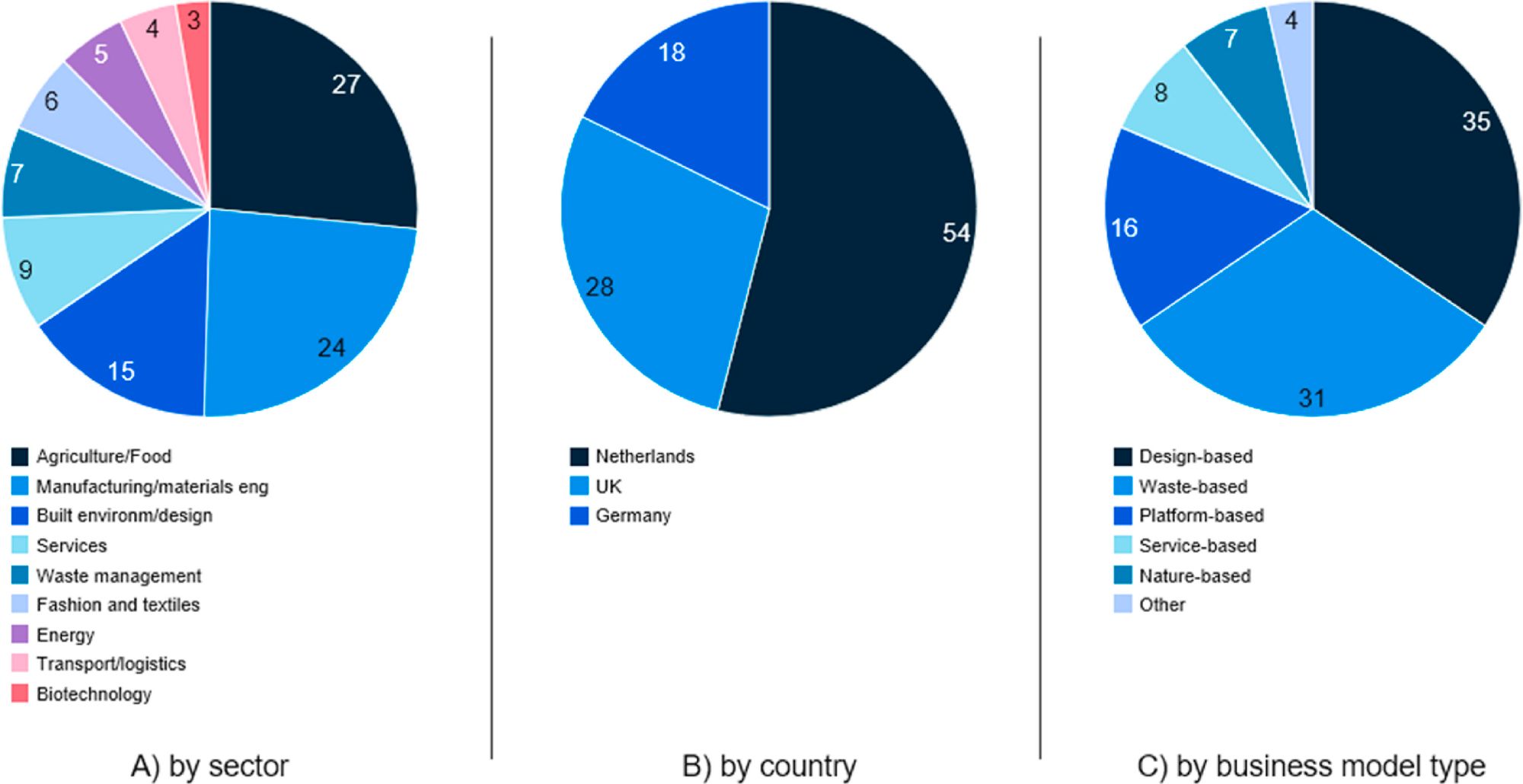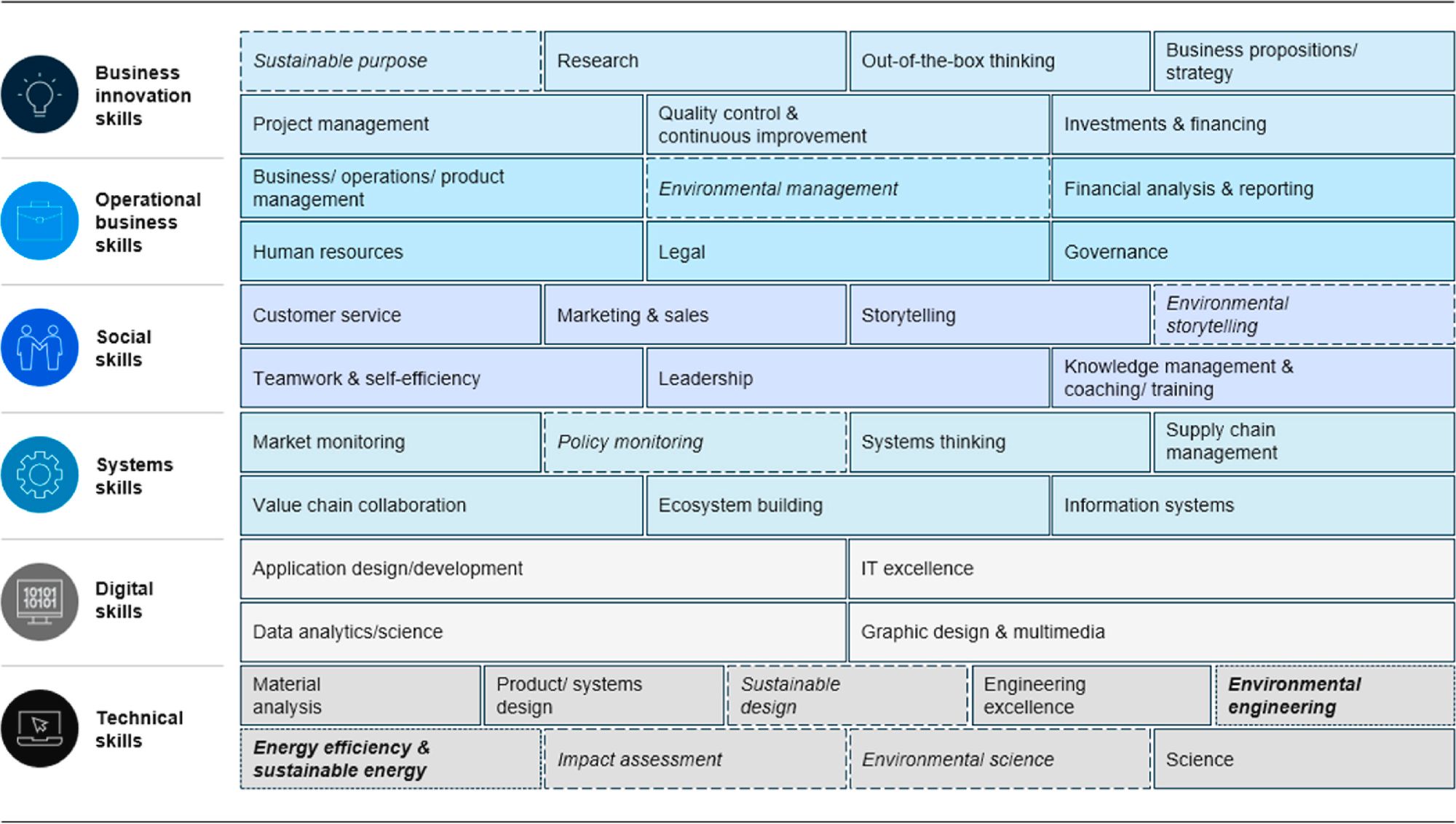For most startups, the first handful of hires has a significant impact. Before a human resource team is put in place, founders depend on tools like LinkedIn and Indeed to find the best candidate. Knowing what skills are relevant for professionals and circular businesses may play a crucial role in their success.
The large picture: The idea of a circular economy (CE) – a system where resources are preserved for as long as possible – is being explored as a way to combine economic growth with sustainability.
- With experts figuring out how to apply CE core principles to existing businesses, there is a clear opportunity for start-ups to implement circular business models from day 1, instead of trying to adapt later on.
- Making the shift to a circular economy is not just about changing our technology (that would be too easy). It is also about rethinking business culture and how organizations hire.
- Changing to a circular economy requires a shift in skills. Businesses will need to broaden their activities to cover the entire lifecycle of a product and work more closely with partners and the wider business environment. This means businesses will have to help their employees develop new skills and build new capabilities.
As it happens: Recently, a team of researchers tried to understand what skills are needed to implement circular business models. A recent study looked into the self-reported skills of 2407 professionals working in circular start-ups in the UK, Germany, and the Netherlands.
- The study examined skills for implementing circular business models (CBMs) in start-ups, filling a current knowledge gap. It seeks to answer: "What skills are needed for CBM implementation in start-ups?"
- They created a new skill taxonomy - a nice-looking map of 40 skills in 6 categories.

What they found: After extensive analysis and classification, this is the skill taxonomy the researchers came up with.

The six areas of classification for skill were defined as:
- Business innovation skills: Developing and seizing innovative business propositions.
- Operational business skills: Solving business problems in real-world settings and allocating resources accordingly.
- Social skills: Working constructively with people to achieve goals.
- Systems skills: Understanding, monitoring, and improving socio-technical systems.
- Digital skills: Developing and managing IT and data.
- Technical skills: Applying technical knowledge in relevant business domains.
What matters: These skills have a significant role in CBM implementation. However, most of them are not declared by professionals as explicitly circular, while they use them in a circular context. In fact, it seems like many professionals do not see their work as 'circular' or see a need to reframe their skills as such.
Their taxonomy suggest that many of the so-called circular skills are an application or mix of "classic" general skills, but applied in a sustainable and circular context. For example,
- Environmental engineering skills have been around for a while.
- Reverse logistics activities use general logistics skills.
- Repair and remanufacturing require general manufacturing skills and skills for handling used parts.
Why it matters: From an employer's perspective, understanding these findings will allow them to expand the number of their potential employees. While helping the professional development of their existing staff.
- While skills framed as circular are still emerging, and many are framed in a general context, leaving them that general can become a barrier to the wider adoption of CBM.
- Businesses need to promote circular thinking among all employees in order to culturally support CBM.
- Accomplishing this may be supported by universities and education throught introducing courses on CE and sustainability in all degree programs.
Significance: The private sector plays a pivotal role in the transition to a circular economy (CE), but there is a gap in understanding the relevance of employee skills for CBM implementation. The study addresses this by proposing a comprehensive skill taxonomy for CBM in start-ups, highlighting the importance of general, sustainable, and circular skills.
Key Findings: The 40 skills in the taxonomy are essential for CBM implementation, but their novelty lies in their application context and their role as organizational foundations. Circular narratives can enhance skill recognition and understanding, aiding the mainstreaming of CE.
Limitations and Future Research: The study has limitations, such as focusing on a specific geographic region and relying on LinkedIn data. It suggests further research on skills across different business types, and geographies, and comparing skill supply and demand.
The researchers are responsible professionals. They clarify that the skill taxonomy is intended as a starting point for more in-depth research, not as a conclusive framework. I say it is all about culture in business, applying existing skills to newly framed issues, and listing as many of those 40 skills on your LinkedIn as possible.
The source: Employee skills for circular business model implementation: A taxonomy

